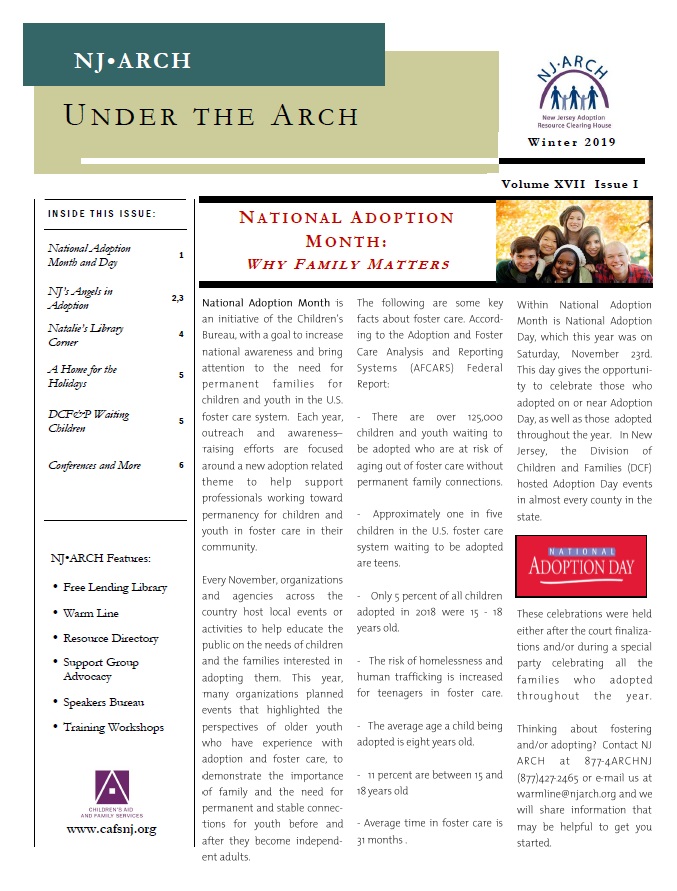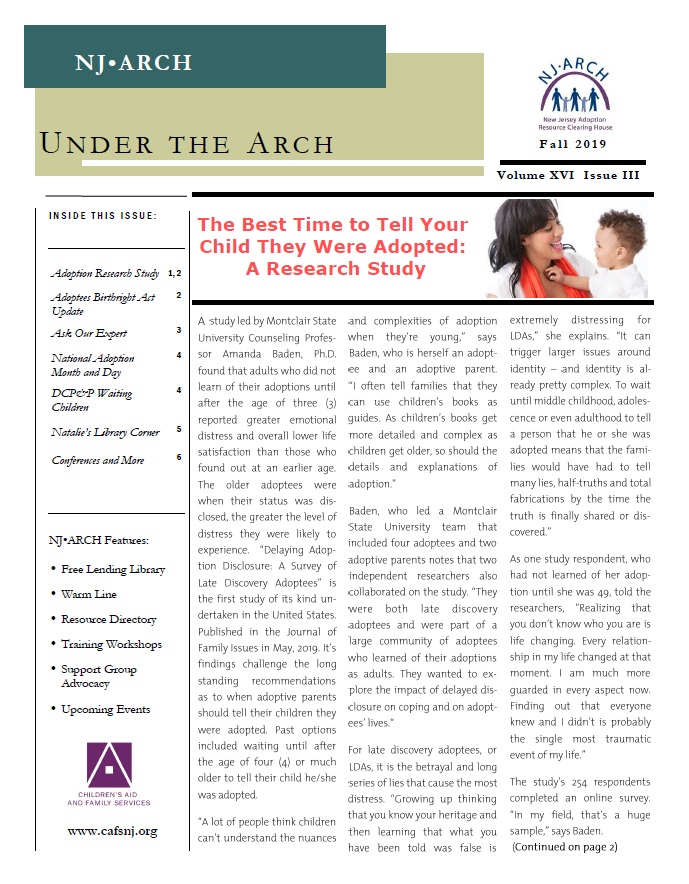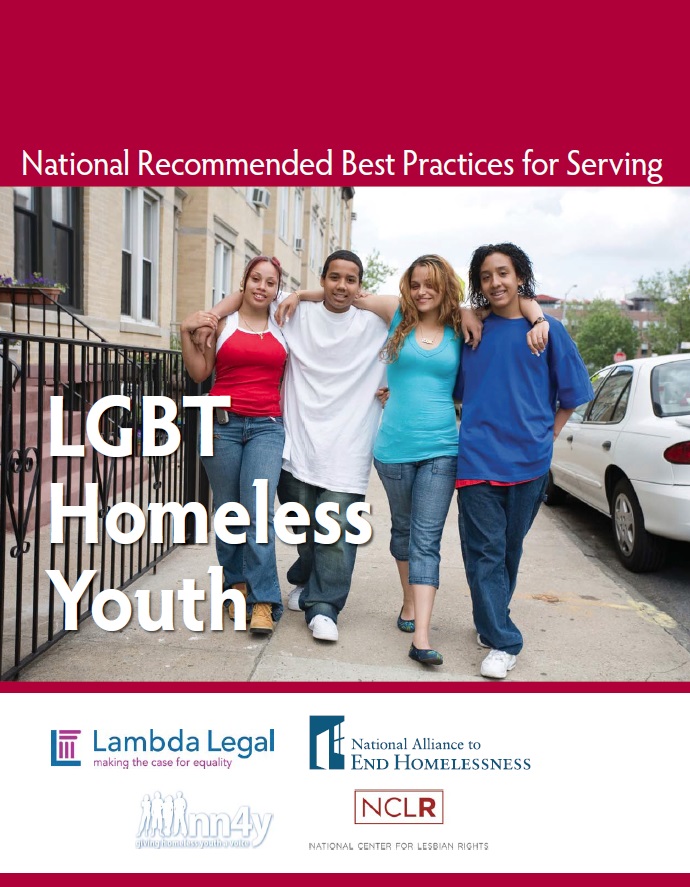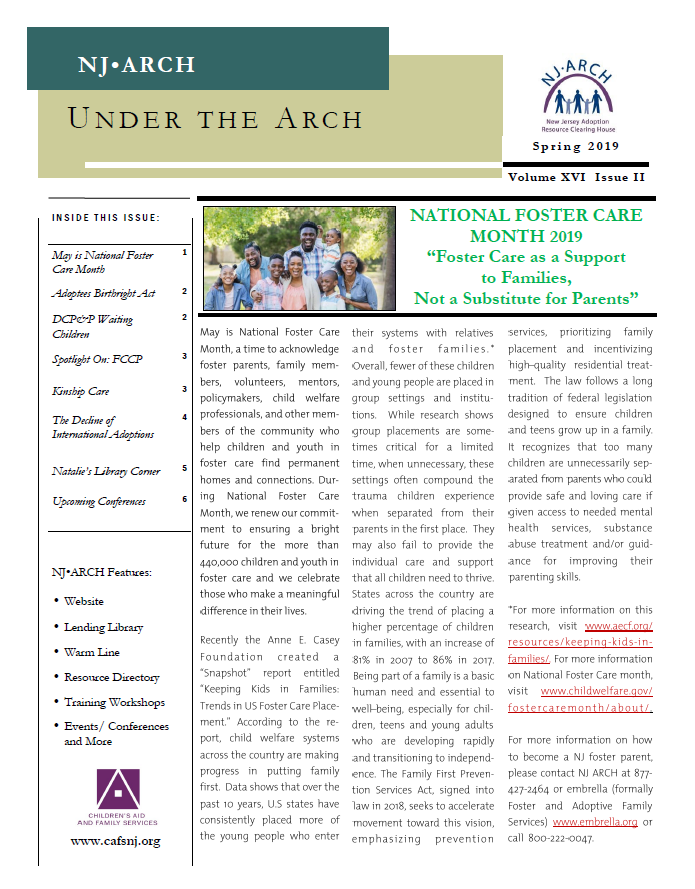IN THIS ISSUE:
- National Adoption Month and Day: Why Family Matters
- Meet NJ’s 2019 Angels in Adoption!
- Natalie’s Library Corner Book Review, En español and English
- Get Ready for “A Home for the Holidays” TV special December 22nd, 8 pm on CBS
- DCP&P Waiting Children
- Conferences and More




